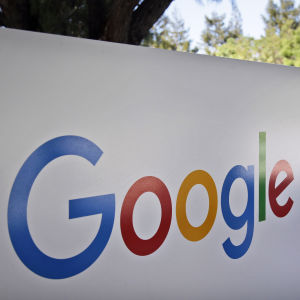For Big Tech, the COVID-19 crisis appears to be its Phoenix moment to rise from the ashes and be forgiven for the problems they’ve caused.
The share prices of Alphabet, Apple, Facebook and Amazon have surged in recent weeks in a sign of Wall Street’s approval amid promises by Google and Apple to create COVID-19 tracking apps to help public health — even as they enable them to harvest even more of our data.
The surge appears to reflect an update assessment by investors that the global pandemic will leave the tech giants even more powerful than before.
But American and European regulators should be accelerating efforts to roll back Big Tech’s control on our economies, not pressing the pause button.
Earlier this month, House lawmakers threatened to subpoena Amazon CEO Jeff Bezos to explore whether Amazon’s harvesting of data from its commercial users is a form of unfair competition.
The Department of Justice and state attorneys general are also signaling they will initiate antitrust litigation against Google this year to combat its efforts to stifle competition. While these probes proceed behind closed doors, a parallel congressional investigation spearheaded by Rhode Island’s Rep. David Cicilline is doing a remarkable job of bringing the scope of Big Tech’s sins out of the shadows and into the public record.
The House Judiciary Committee’s Antitrust Subcommittee, led by Cicilline, announced its sweeping investigation into competition in digital markets last June. In the months since, Big Tech’s vaunted lobbying operation and its army of well-compensated “experts” have argued that antitrust enforcement could hamstring innovation. They’re now seizing on COVID-19 to champion the indispensability of their clients. Don’t buy their spin.
My own company’s experience offers a clear example of how Google’s blatant suppression of competitors on its platform represents the real threat to free-market competition in the digital economy. And ultimately, it’s consumers who end up paying the price.
Kelkoo was founded two decades ago, back when the digital economy was still a wide-open playing field on which any entrepreneur could launch a new idea without worrying that gatekeepers with trillion-dollar market valuations would stand in their way.
Our value prop for consumers was simple: We brought together products from thousands of retailers in one place to enable consumers to compare choices and find the best deals. While we focused initially on Europe, we quickly found ourselves competing against dozens of startups on both sides of the Atlantic, all battling furiously to win market share by adding features, differentiating our sites, and trying to offer the best prices.
From its perch as the world’s dominant search monopoly, Google saw the business opportunity and decided it wanted not just a slice but as much as possible of the entire pie. Google launched a competing service, Froogle, a few years after Kelkoo helped pioneer the market.
But Froogle was a flop. Even after copying the most innovative features from competitors and rebranding, consumers were still flocking instead to smaller, scrappier comparison-shopping sites like ours.
So instead of doubling down on innovation and “building a better mousetrap,” Google then tilted the playing field.
All comparison-shopping sites depend heavily on traffic from search results. So, Google decided to suffocate us by changing its search algorithm to bury us farther down in the results while ensuring Google’s competing service held the top spot on the page.
This wasn’t about benefiting users. It was a brazen power play, leveraging Google’s search monopoly to promote its inferior shopping service at the expense of competitors and consumers. And it worked.
The European Union’s competition regulator penalized Google’s practices with a $2.71 billion fine. But the fine didn’t stop Google from continuing to methodically suffocate competitors in the online shopping marketplace like Shopping.com, Pricegrabber and Nextag, driving them to the brink of extinction.
In in the end it is consumers who lose out when a digital gatekeeper is allowed to unilaterally remove competitors. You can measure the costs in dollars and cents: an analysis of Google’s consolidation of the product advertising market suggests that if you buy a $650 TV online, you’re probably paying $20 more today than you would pay if the online shopping ecosystem was more competitive.
A generation ago, the internet’s pioneering entrepreneurs envisioned a wide-open digital playing field in which innovators would compete on the strength of their ideas.
A generation from now, we may look at the COVID-19 pandemic as a turning point that either entrenched Silicon Valley’s monopolistic gatekeepers or began to restore the promise and potential of that original vision.

